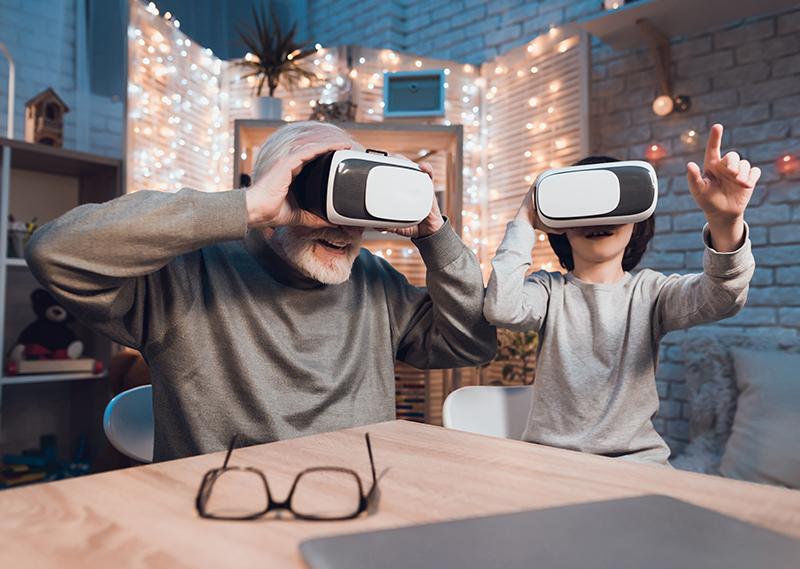Imagine for a moment how it would feel to struggle with the cognitive challenges of dementia. The people who are closest to you are now unfamiliar. The words that would roll off your tongue without a second thought are now just out of reach. In fact, the world as you once knew it has completely turned upside down, leaving you longing for a familiar foothold.
One of the kindnesses imparted by dementia is the long-term memories that often remain intact long after short-term memories have subsided. It’s why connecting seniors with dementia to the past is often an incredibly effective way to engage them – through music, photos, movies, and reminiscing. We can now add a new activity for dementia to the list that’s showing remarkable results: virtual reality.
Skip Rizzo, director for medical virtual reality at the USC Institute for Creative Technologies, has been using the technology to help veterans experiencing PTSD. He’s now expanding his reach to older adults – beginning with his own 89-year-old mother, whose delightful reaction to a virtual trip to Rome showed just how impactful the technology can be for seniors.
Rizzo shares an experience in which he visited a nursing home where a group of residents were simply sitting around a table in silence, until he began showing them flashcard-like pictures of objects from the past. The change in the atmosphere was electric, as the seniors began sharing memories with one another. With the ability of low-tech tools such as simple pictures to create joy for seniors, imagine the possibilities available to us now with high-tech options like virtual reality!
The benefits of virtual reality for older adults extend even further than boosting memory and bringing enjoyment, including:
Improved Medical Care
The distraction of virtual reality is showing to be an effective tool for easing physical pain for seniors. It can also be used to enhance balance and other motor skills, as well as improve spatial reasoning. It can even help doctors detect health issues by observing how seniors respond in different games and activities.
Heightened Socialization
We know that senior isolation is a contributing factor in a number of physical and mental health problems. A recent study by the National Academies of Sciences, Engineering and Medicine revealed that as many as one in four older adults are feeling socially isolated. Want to explore creative options to improve quality of life for a senior you love? Contact our experts in senior care in Windsor, Ontario and the surrounding areas any time at 519-915-4370 to learn more!















